#Mark H. Dold
Text

Hamish Linklater and Mark H. Dold in Craig Lucas’s Singing Forest in 2005
63 notes
·
View notes
Photo

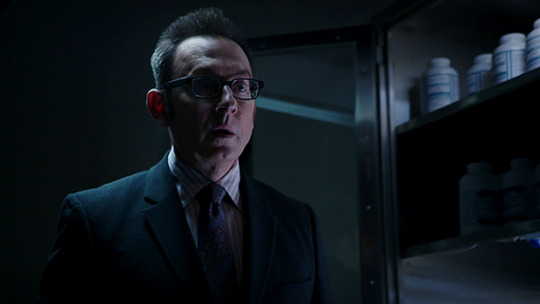


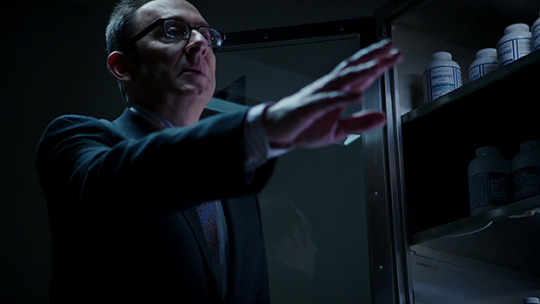
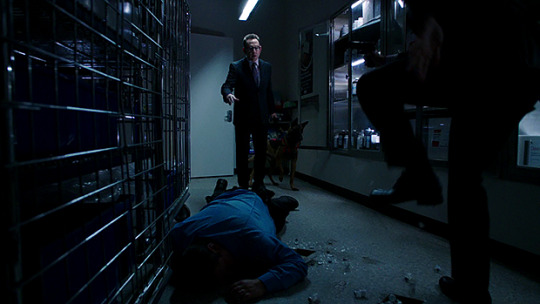
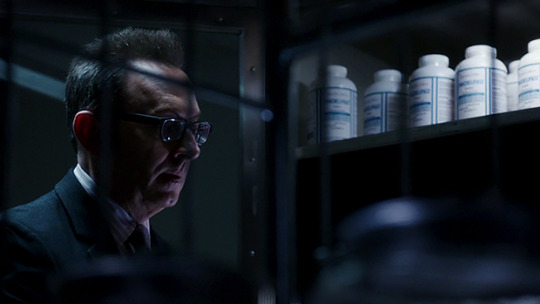
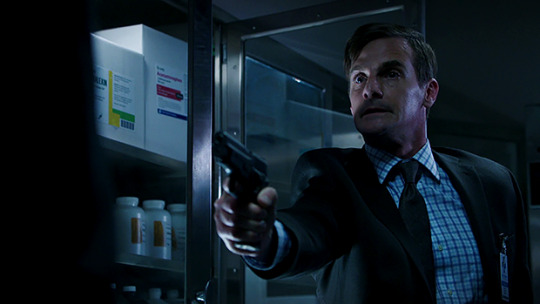
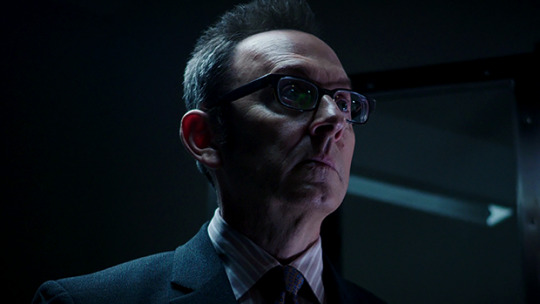
Person of Interest - Reassortment - Season 5 Episode 8 - 1 of 2
Harold Finch
‘You’ve just destroyed our only chance of fighting the virus.’
‘No. I just ushered in the Future.’
7 notes
·
View notes
Photo
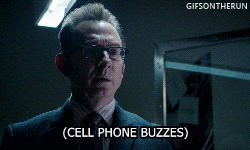
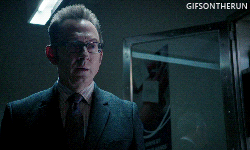

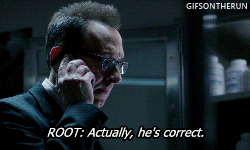


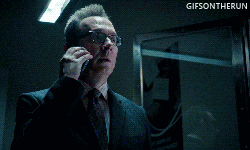



Person of Interest 📷 5.08 "Reassortment"
#Person of Interest#2016#GIF#TV#Harold Finch#Samantha Groves#Root#Michael Emerson#Mark H. Dold#Amy Acker#POIs05#POI: 5x08
43 notes
·
View notes
Text
REVIEW: "The Glass Menagerie" at Barrington Stage Company
REVIEW: “The Glass Menagerie” at Barrington Stage Company
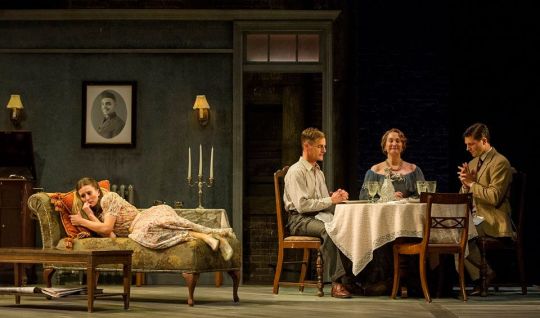
View On WordPress
#Alexander Sovronsky#Angela Janas#Barrington Stage Company#Boyd-Quinson MainStage#Brian Prather#Caitie Martin#Caitlin O’Connor#Daniel Rader#Elivia Bovenzi#Joel Abbott#Julianne Boyd#Macey Levin#Mark H. Dold#Matthew Richards#Patrick David Egan#Pittsfield MA#Susan French#Tennessee WIlliams#The Glass Menagerie#Tyler Lansing Weaks
4 notes
·
View notes
Text
Dreamcasting Broadway: THE CHRISTIANS





“I say, we are no longer a congregation that believes in Hell. A radical change: we are no longer a congregation that says my way is the only way.”
Dreamcasting Broadway: The Christians
Andrew Lincoln as Pastor Paul
André Holland as Associate Pastor Joshua
Elizabeth Marvel as Elizabeth
Chuck Cooper as Elder Jay
Chalia La Tour as Jenny
Mark H. Dold as Standby (Pastor Paul)
Jakeem Dante Powell as Standby (Associate Pastor Joshua)
Jennifer Ikeda as Standby (Elizabeth, Jenny)
Scott Jaeck as Standby (Elder Jay)
#dreamcasting#dreamcastingbroadway#the christians#lucas hnath#andrew lincoln#andre holland#elizabeth marvel#chuck cooper#chalia la tour#mark h dold#jakeem dante powell#jennifer ikeda#scott jaeck#broadway#broadway theatre#play#broadway play
4 notes
·
View notes
Text
Freud’s Last Session - no high drama, but enjoyable for its light humour
There is no escaping the couch even, or perhaps especially, for Oxford don C. S. Lewis in the presence of the father of psychoanalysis, Sigmund Freud, although he does put up a vigorous fight in defence of Christianity.
Freud’s Last Session, a snapshot of an imaginary meeting between the two intellectual giants, takes place in Freud’s study on September 3rd, 1939, two weeks before his doctor pulls the plug on him at his request.
Such subject matter is prone to dramatic banality. What saves it from such degeneration is Mark St. Germain’s witty script, which accords more humour to Freud than I can imagine him having in real life, despite his treatise on humour, Jokes and Their Relation to the Unconscious. In response to his apology for being late, Freud quips: “If I wasn’t eighty-three I would say it doesn’t matter.”
The work is faithful to historical details. Freud correctly points out that Lewis converted to Christianity on a ride in the sidecar of a motorbike driven by his brother, and doesn’t miss an opportunity to psychoanalyse: “…you’d wonder why someone would huddle in a sidecar rather than mount the motorbike,” he says. “The disappointing answer is that I can’t drive,” Lewis answers.
Freud is not one to give up. Observing how Lewis rushes about when the air-raid siren sounds, he extracts intimate details about the impact of his experience in the First World War. “When I heard the siren,” Lewis admits, “I was back there. The smell of explosives. Bodies all around me…”
Yet he nearly turns the table on Freud when he persistently questions him about his daughter Anna. Freud is adept, however. “What do you call a man whose desk is guarded by gods and goddesses?” Lewis asks. “A collector,” Freud shrewdly answers.
In a conversation between an avowed atheist and an intensely devout Christian, we can expect some heated arguments about religion. Neither, it seems, has the upper hand. “If you are right,” Freud says to Lewis, “you’ll be able to tell me so. But if I am right, neither of us will ever know.” Despite the tension, the respect between the two never wanes.
Martin Rayner does a respectable job as Freud, an ascetic academic with vulnerabilities deserving of pity for persecution under the Nazis, now near the end of his life. As cancer consumes his body, his mind rebels with cynicism and anger. Rayner even bears some physical resemblance to Freud.
Mark H. Dold captures well the sensibility of Lewis as a compassionate, upright, and caring Christian, quite helpless though in the face of Freud’s suffering. The story about him caring for the mother of a fellow soldier who died in battle, and his love for Joy Gresham is well known. Douglas Gresham, his stepson, calls him “a great man”. Next to Freud, a renowned scholar twice his age, he remains diffident.
Worthy of mention is Brian Prather’s set, which is elaborate in detail. A floor to ceiling shelf on the back wall upstage filled with books, a couch draped in rugs, giant windows behind Freud’s desk letting in plenty of light, and the period radio all add to the coziness of the study.
Freud’s Last Session is no high drama, but intellectual jousting between two sensitive academics made all the more enjoyable for its light humour. Director Tyler Marchant has done a sterling job.
Freud’s Last Session
The Marjorie S. Deane Little Theater
New York
#C. S. Lewis#Freud's Last Session#Marjorie S. Deane Little Theater#Mark H. Dold#Mark St. Germain#Martin Rayner#Sigmund Freud#Tyler Marchat
0 notes
Photo
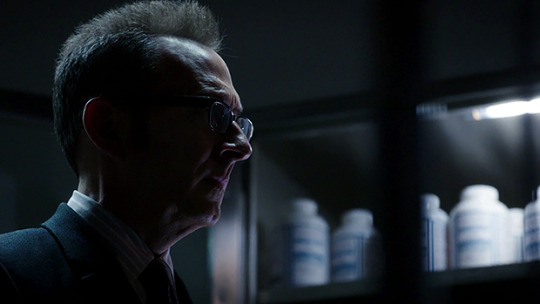
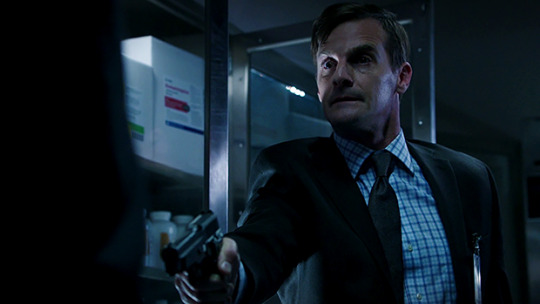
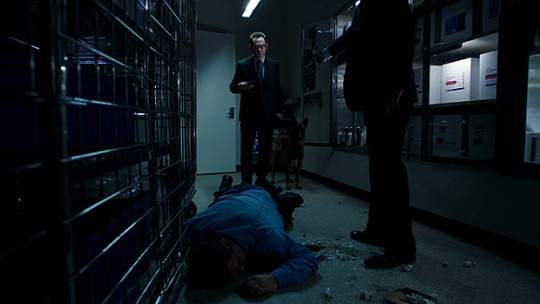
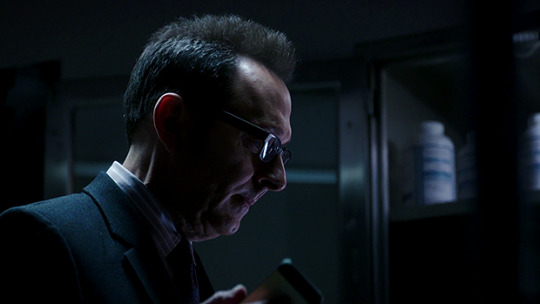
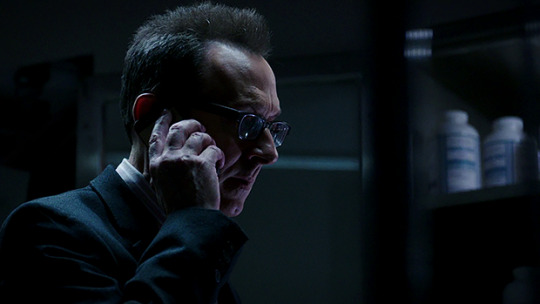

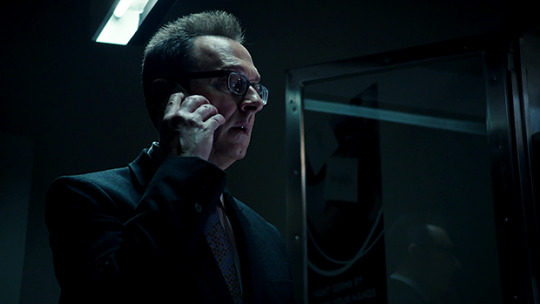
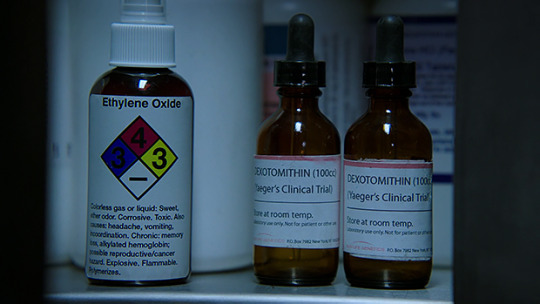

Person of Interest - Reassortment - Season 5 Episode 8 - 2 of 2
Harold Finch
‘Actually he’s correct. It is your Boss and, she has a message for you. Aanval, and Ethylene Oxide.’
‘Aanval?’
‘It’s Dutch, Harry.’
#person of interest#harold finch#michael emerson#root#amy acker#mark h. dold#my screencaps#poicaps#s5
6 notes
·
View notes
Text
"Shining City" Reviewed - 90 minutes of self loathing, then a ghastly conclusion
“Shining City” Reviewed – 90 minutes of self loathing, then a ghastly conclusion
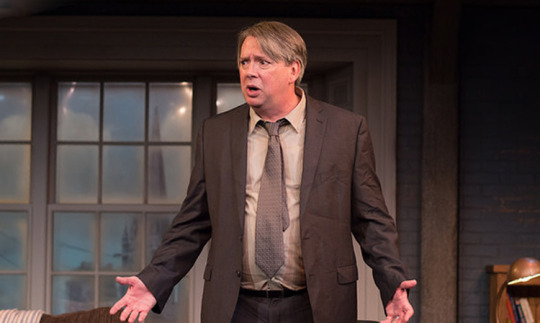
View On WordPress
#Barrington Stage Company 2015#Conor McPherson#Deanna Gibson#directed by Christopher Innvar#Gail M. Burns and Larry Murray#Mark H. Dold#Patrick Ball#Shining City review#Wilbur Edwin Henry
1 note
·
View note
Text
Barrington Stage comes up with a doozie of a screwball comedy with "His Girl Friday"
Barrington Stage comes up with a doozie of a screwball comedy with “His Girl Friday”

View On WordPress
#adapted from the film and play#Barrington Stage Company#Christopher Innvar#His Girl Friday#Jane Pfitsch#John Guare#Julianne Boyd directed#Mark H. Dold#zany comedy
1 note
·
View note
Text
REVIEW: "Harry Clarke" at Barrington Stage Company
REVIEW: “Harry Clarke” at Barrington Stage Company
by Macey Levin
The one-man play, Harry Clarke by David Cale, featuring Mark H. Dold and produced by Barrington Stage Company, is receiving an insightful and enthralling production at the Tartell Family Outdoor Stage diagonally across from the Mark St. Germain Stage on Linden Street, Pittsfield.
At the age of eight Philip Brugglestein mutates into Harry Clarke – a Brit,…
View On WordPress
#Alexander Sovronsky#Barrington Stage#Barrington Stage Company#BSC#David Cale#David Lander#Geoff Boronda#Harry Clarke#Julianne Boyd#Mark Dold#Mark H. Dold#Pittsfield MA#St. Germain Stage#Sydelle and Lee Blatt Performing Arts Center#Tartell Family Outdoor Stage
1 note
·
View note
Text
REVIEW: "Harry Clarke" at Barrington Stage Company
REVIEW: “Harry Clarke” at Barrington Stage Company
by Macey Levin
The one-man play, Harry Clarke by David Cale, featuring Mark H. Dold and produced by Barrington Stage Company, is receiving an insightful and enthralling production at the Tartell Family Outdoor Stage diagonally across from the Mark St. Germain Stage on Linden Street, Pittsfield.
At the age of eight Philip Brugglestein mutates into Harry Clarke – a Brit,…
View On WordPress
#Alexander Sovronsky#Barrington Stage#Barrington Stage Company#BSC#David Cale#David Lander#Geoff Boronda#Harry Clarke#Julianne Boyd#Mark Dold#Mark H. Dold#Pittsfield MA#St. Germain Stage#Sydelle and Lee Blatt Performing Arts Center#Tartell Family Outdoor Stage
0 notes
Text
by Macey Levin
In 1945, Tennessee Williams gave us The Glass Menagerie which earned him a number of awards and propelled him into his ranking as a major American playwright. His canon of plays led by A Streetcar Named Desire, Summer and Smoke, The Rose Tattoo, Cat on a Hot Tin Roof, Sweet Bird of Youth and Orpheus Descending secured his place in the pantheon of American theatre artists. Menagerie has been revived several times on Broadway and has been performed by many major regional theatres across the country. The current production at Barrington Stage Company in Pittsfield, MA is gripping.
It probably isn‘t necessary to summarize the plot of the play since it has a special place in the American theatre. Suffice it to say that it is a memory play about the Depression era Wingfield family in St. Louis after the husband/father deserted them sixteen years earlier. The clash between Tom Wingfield (Mark H. Dold) and his mother Amanda (Caitlin O’Connell) and the fears of his profoundly shy sister Laura (Angela Janas) and their resolution, or lack of resolution, is the core of the play.
Director Julianne Boyd has made several intriguing choices starting at the very top of the show. Dold enters and begins his opening monologue while the house lights are still on. Perhaps the intention is to create an intimate relationship with the audience and to set him apart from the story he is about to narrate. The same thing occurs at the beginning of the second act while the audience is still filing in and talking amongst themselves. Only a loudly projected first line of this monologue sent the audience scampering to their seats.
Dold is omni-present as the narrator. When he is not directly involved in a scene he remains onstage sitting on the floor leaning against the stage left proscenium, watching his life and relating the story to us. His performance is controlled and affecting. We understand his need to break away from his crushingly routine existence which, ultimately, he cannot escape. He carries the memory of his sister wherever he goes, pleading with her to “Blow out your candles, Laura.” Dold carries the burden of Tom’s life in his well-rounded, insightful performance.
Amanda is often portrayed as a nag, attacking Tom and scolding Laura while reminiscing about her past as a southern belle in Blue Mountain and her seventeen gentleman callers to stave off the darkness of her current life. O’Connell creates a more sympathetic Amanda who has a truly heartfelt concern for her children rather than being a harridan. She exudes an engaging charm that is not always utilized in other productions.
Angela Janas is a moving Laura, her entire body is evidence of the diffident nature of her character. At the same time her sensitivity and concern for both mother, whom she some times fears, and brother is palpable. In the candlelight scene with Jim (Tyler Lansing Weaks,) the gentleman caller, she is charming as she lets down her guard and her hidden personality shines until he informs her of Betty, his steady girl friend, soon to be wife. Dismay pushes her once again into the shy, pained young woman she will always be. Weaks’ gentleman caller is softer and less arrogant than is usually seen in other productions. There is a sincerity and a fondness for Laura that emanates from him. The entire cast brings a richness of insight and astuteness to their characterizations.,
This slideshow requires JavaScript.
In the original, and probably most productions, background music was prerecorded. Here, a violist (Susan French) is perched on a fire-escape platform above the set. Composer Alexander Sovronsky’s original music is delicate and subtly enhances the dramatic tones of the play. Though French’s performance is essential and effective, she is unobtrusive. This choice is a powerful alternative to canned music.
Director Boyd has also mined the humor of the play. Where the work is often performed wrapped in dramatic gravity, she has brought different textures to this production that makes the manifold confrontations even more painful, while evoking an awareness of the Wingfields’ humanity. Her staging on Brian Prather’s set is well-balanced, producing interesting pictures. However, there seems to be too much openness in the apartment, compromising the claustrophobia that provokes many of the arguments between Tom and Amanda.
Matthew Richards’ lighting is evocative, including the neon “Paradise” ballroom dancing sign that hovers over the apartment. The candlelight scene is beautifully sculpted lending the stage and the scene an intimacy and warmth. The costumes by Elivia Bovenzi capture the time and the characters. Amanda’s dress for the gentleman caller’s dinner is atrociously fetching.
The Glass Menagerie is an American classic… deservedly so. One of the beauties of the play is the opportunity to listen to Williams’ virtually poetic language. With a phrase he touches upon searing emotions that help to delineate his characters’ personalities. The play is autobiographical material which add to the perception that the Wingfields and Jim O’Connor are real people.
This is a beautiful production that enhances the play’s already radiant reputation.
The Glass Menagerie by Tennessee Williams, Directed by Julianne Boyd. Cast: Mark H. Dold (Tom Wingfield) Caitlin O’Connor (Amanda Wingfield) Angela Janas (Laura Wingfield) Tyler Lansing Weaks (Jim O’Connor) Susan French (Violist); Scenic Designer: Brian Prather; Costume Designer: Elivioa Bovenzi; Lighting Designer: Matthew Richards; Sound Designer: Joel Abbott; Hair and Wig Designer: Caitie Martin; Composer: Alexander Sovronsky; Production Stage Manager: Patrick David Egan; Barrington Stage Company, Boyd-Quinson Mainstage, Pittsfield, MA; Running time: 2 hours 20 minutes, one intermission. 10/3/18-10/21/18
REVIEW: “The Glass Menagerie” at Barrington Stage Company by Macey Levin In 1945, Tennessee Williams gave us The Glass Menagerie which earned him a number of awards and propelled him into his ranking as a major American playwright.
#Alexander Sovronsky#Angela Janas#Barrington Stage Company#Boyd-Quinson MainStage#Brian Prather#Caitie Martin#Caitlin O’Connor#Daniel Rader#Elivia Bovenzi#Joel Abbott#Julianne Boyd#Macey Levin#Mark H. Dold#Matthew Richards#Patrick David Egan#Pittsfield MA#Susan French#Tennessee WIlliams#The Glass Menagerie#Tyler Lansing Weaks
0 notes
Photo

Barrington Stage Company Presents “The Glass Menagerie” (Pittsfield, MA) Barrington Stage Company (BSC), the award-winning theatre in the Berkshires under the leadership of Artistic Director Julianne Boyd, presents Tennessee Williams’ …
#Alexander Sovronsky#Angela Janas#Barrington Stage#Barrington Stage Company#Boyd-Quinson MainStage#Brian Prather#BSC#Caitlin O’Connell#Elivia Bovenzi#Joel Abbott#Julianne Boyd#Mark H. Dold#Matthew Richards#Pat McCorkle#Patrick Egan#Pittsfield MA#Susan French#Tennessee WIlliams#The Glass Menagerie#Tyler Lansing Weaks
0 notes
Text
REVIEW: "Gaslight" at Barrington Stage Company
REVIEW: “Gaslight” at Barrington Stage Company
by Macey Levin “Gaslighting” refers to the attempt to surreptitiously drive someone to insanity. This sinister act is at the core of Patrick Hamilton’s play Gaslight, now receiving a stellar production at Barrington Stage Company. First produced in London in 1938 it was presented in the United States in 1941 under the title Angel Street starring Leo G. Carroll, Vincent Price and Judith Evelyn. …
View On WordPress
#Ali Rose Dachis#Angel Street#Anne Ford-Coates#Barrington Stage#Barrington Stage Company#Beth Goldenberg#Boyd-Quinson Main Stage#BSC#Gaslight#Joel Abbott#Kate Noll#Kevin O&039;Rourke#Kim Stauffer#Louisa Proske#Macey Levin#Mark H. Dold#Patrick Hamilton#Peggy Pharr Wilson#Pittsfield MA#Renee Lutz#Scott Pinkney
0 notes
Photo
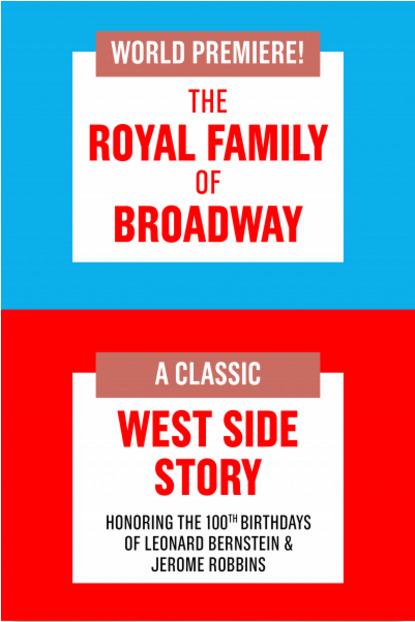
Barrington Stage Announces Two Musicals for 2018 Season (Pittsfield, MA– October 5, 2017) Barrington Stage Company (BSC), the award-winning theatre in Downtown Pittsfield, MA under the leadership of Artistic Director Julianne Boyd, announced today two productions for their 2018 season – the world premiere of…
#Ali Rose Dachis#Angel Street#Arthur Laurents#Barrington Stage#Barrington Stage Company#Boyd-Quinson MainStage#BSC#Edna Ferber#Gasllight#George S. Kaufman#Harold S. Prince#Jerome Robbins#John Rando#Joshua Bergasse#Julianne Boyd#Kevin O&039;Rourke#Kim Stauffer#Leonard Bernstein#Louisa Proske#Mark H. Dold#Patrick Hamilton#Peggy Pharr Wilson#Pittsfield MA#Rachel Sheinkin#Robert E. Griffith#Robert La Fosse#Roger L. Stevens#Stephen Sondheim#The Royal Family#The Royal Family of Broadway
0 notes
Text
This One’s For You
by Barbara Waldinger
Barrington Stage Company’s play captures “the hilarious yet touching relationships of a circle of friends as they back their way into middle age.” So reads Barrington Stage Company’s description of Melissa James Gibson’s play, This. True, but their production offers infinitely more to the fortunate theatregoers who make their way to see This on the St. Germain Stage. The writing, directing and acting are of the highest caliber and make it a must-see in a season filled with quality work.
Winner of an OBIE Award for her 2002 play, [sic], and numerous fellowships, Gibson has seen her work produced on stages throughout the country. When asked about her literary style, she explains: “I’m definitely attracted to writing that really sits on the edge of comic and deeply painful. That, to me, is where life exists most fully.” Premiering in 2009 at Playwrights Horizons, This is a character-driven play about four Gen-Xers who met in college some twenty years earlier—the interracial couple Tom (Eddie Boroevich), a carpenter, and Marrell (Erica Dorfler), a jazz singer, whose baby doesn’t sleep more than fifteen minutes at a time; Jane (Julia Coffey), a recently widowed poetry teacher and mother; and their gay, Jewish, single sidekick, Alan (Mark H. Dold in a virtuoso performance). Add to the mix an outsider, Jean-Pierre (Paris Remillard), a charming French Doctor Without Borders, whom Tom and Marrell clumsily set up with Jane.
This slideshow requires JavaScript.
Each of the four friends is facing a particular mid-life crisis, and the way they cope with their struggles and one another as they attempt to find a way forward is both unpredictable and a joy to watch. The play opens with a fast-paced party game, as the group convinces an unwilling Jane (the young widow) to leave the room while they make up a story that she will be called upon to deduce through questions and answers. Once called back, Jane is instructed to ask “yes” or “no” questions only; but what she doesn’t know (and we do) is that there is no story–the answer in each case is based purely on the last letter of Jane’s question: if it’s a vowel, the answer it “no,” if a consonant, it’s “yes,” and if a “y” it’s maybe. As a consequence, the person asking the questions is inadvertently inventing her own story, which is where the fun lies. But the game backfires as Jane’s story becomes too personal, involving a woman whose husband is dead. Distraught she flees the gathering. This is one of many times in the play when a seemingly harmless comment or event freezes our laughter in our throats as the characters face loneliness, the death of a loved one, lack of purpose, self-doubts, marital problems, parenthood and racial, sexual and religious tensions.
Gibson’s crackling dialogue is reminiscent of Aaron Sorkin at his best: educated, clever, sharp, wisecracking and fast-moving. You’re likely to want to stop the action in order to fully absorb some of the witty aphorisms, as they often reflect what we feel but cannot express. As often as not, it’s Alan who delivers such lines as: “the What Do You Do question is just a short cut to the unspoken ranking system that’s going on in all interpersonal situations at all times.” The script reads like poetry-— no full sentences, no punctuation, and multiple conversations seemingly take place at the same time, fugue-like.
The actors are uniformly excellent. Boroevich’s Tom, the one who did not go to the friends’ Ivy League college but instead mowed the lawn there, beautifully expresses his unhappiness at home and unfulfilled longings, while his wife, who sees a therapist, engages in an intellectual analysis of her unhappy marriage to “the martyred artist” in a wonderfully ironic conversation with her best friend Jane, who can’t manage her own life or the secrets she carries. As Jane, Coffey’s performance, so vulnerable and believable that it’s sometimes painful to watch, is luminous as she gradually comes to acknowledge the grief she has been suppressing. Dold, a veteran at BSC, continues to surprise in the variety of characters that he embodies. Whether Alan is sitting in the shadows interpreting Jane’s phony smiles, unsuccessfully coming on to Jean-Pierre for whom he wants to work as a do-gooder, or remembering every conversation he ever had as a mnemonist (which upsets those who prefer to remember words they wanted to say, rather than what they said), you feel the need to keep an eye on him even when the action centers on someone else. He is hilarious, needy, eccentric, alcoholic, and very loving and supportive of his friends– like a prism, he exhibits a variety of different colors all at once. Remillard’s doctor, who is mostly called on to be sexy and charming, is the least developed character. The scene in which he’s on the phone, shouting entirely in French (with no translation) after hearing about an attack on an ambulance, while the other characters stare at him (uncomprehendingly?), concluding with a continuation of the dinner party as though nothing happened, is classic.
Kudos to Louisa Proske, the director, for keeping us on track as we follow these characters from one apartment to the other, from outside to inside, from home to work. Together with the scenic designer, Brian Prather, they create every environment on the stage at once, nearly eliminating the need for set changes. The newly widened St. Germain stage contains two apartments –one belonging to Tom and Marrell, including a modern stainless steel kitchen and living room with a piano, and the other to Jane: a mess of a living room, littered with papers, books and clothes hanging from dryer racks that provokes Alan to advise her: “you need to clean your house and buy some groceries and repair your coat and fix your life.” The transitions from one apartment to the other, complete with an outside walkway and front door, are seamless, accompanied by jazz compositions provided by sound designer David Thomas. Scott Pinkney offers the many lighting fixtures that illuminate each apartment while costume designer Tricia Barsamian dresses the actors in a way that perfectly captures their characters, including Alan’s frumpy sweaters and Marrell’s lovely purple dress and beige heels worn at the jazz club where she dazzles us with her gifts as a singer/pianist.
Nothing about this top-notch production is forgettable—except the title. Don’t miss This”one.
This runs from August 3-27 at Barrington Stage Company’s St. Germain Stage. For tickets call 413-236-8888 or online at www.barringtonstageco.org.
Barrington Theatre Company presents This, by Melissa James Gibson. Cast: Eddie Boroevich (Tom), Julia Coffey (Jane), Mark. H. Dold (Alan), Erica Dorfler (Marrell), Paris Remillard (Jean-Pierre), Rebecca Weiss (Voice of TV Producer). Director: Louisa Proske; Scenic Designer: Brian Prather; Costume Designer: Tricia Barsamian; Lighting Designer: Scott Pinkney; Sound Designer: David Thomas; Production Stage Manager: Michael Andrew Rodgers. Running Time: one hour fifty minutes, no intermission; at the St. Germain Stage at the Sydelle and Lee Blatt Performing Arts Center, 36 Linden Street, Pittsfield, MA., from August 3, closing August 27, 2017.
REVIEW: “This” at Barrington Stage This One’s For You by Barbara Waldinger Barrington Stage Company’s play captures “the hilarious yet touching relationships of a circle of friends as they back their way into middle age.” So reads Barrington Stage Company’s description of Melissa James Gibson’s play, …
#Barbara Waldinger#Barrington Stage#Barrington Stage Company#Brian Prather#BSC#David Thomas#Eddie Boroevich#Erica Dorfler#Julia Coffey#Louisa Proske#Mark H. Dold#Melissa James Gibson#Michael Andrew Rodgers#Paris Remillard#Pittsfield MA#Rebecca Weiss#Scott Pinkney#St. Germain Stage#Sydelle and Lee Blatt Performing Arts Center#This#Tricia Barsamian
0 notes